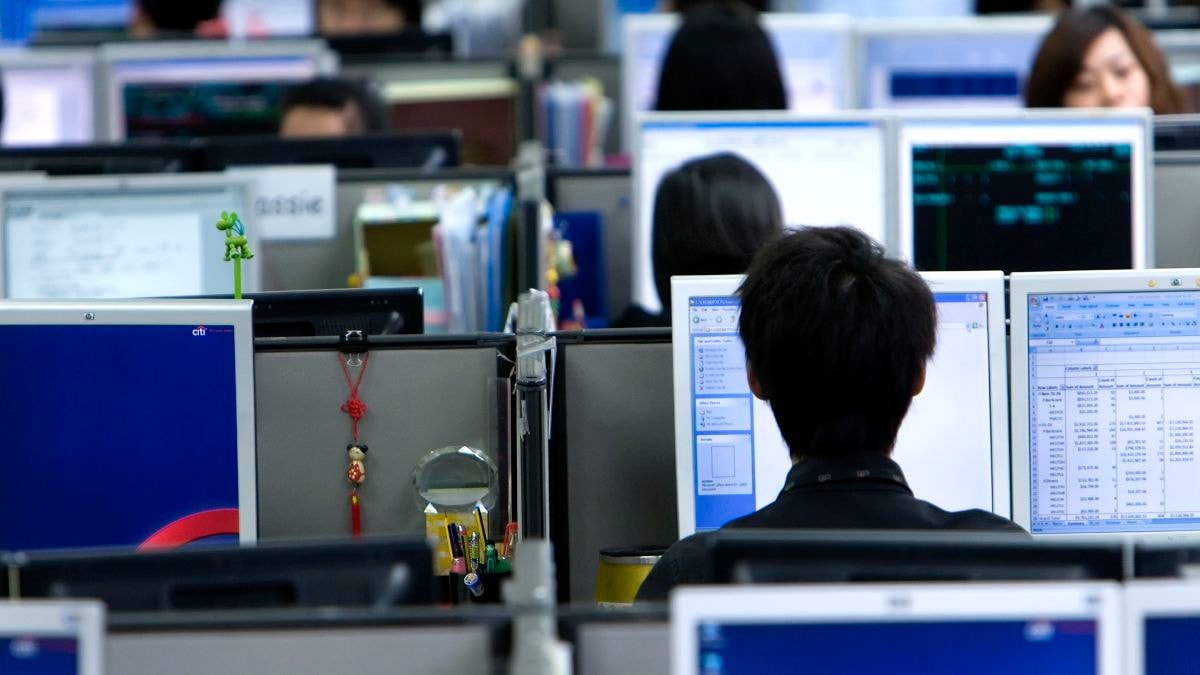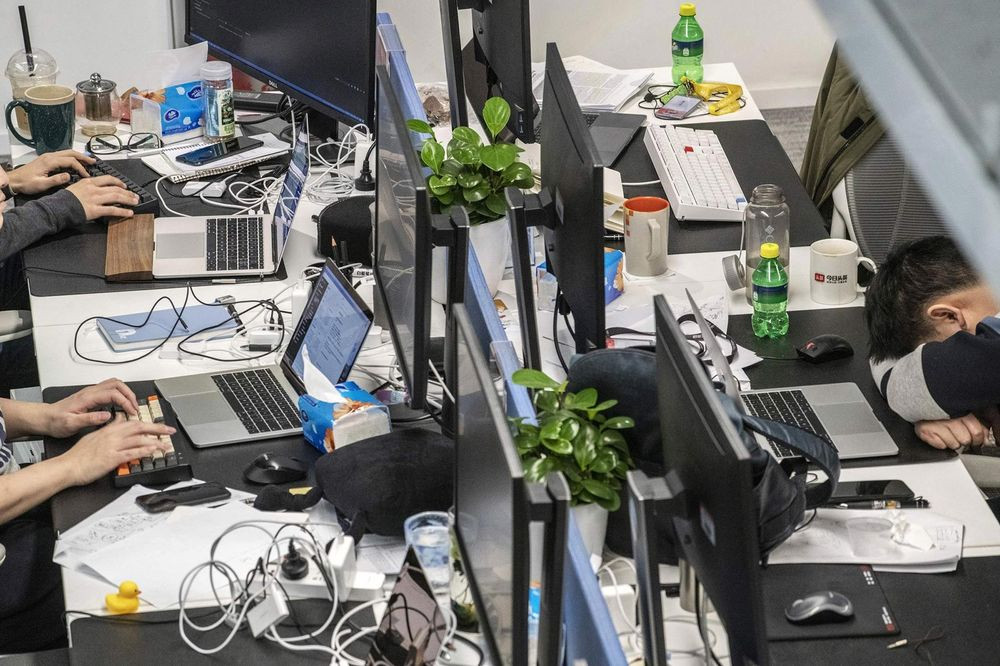Working '996' style, Chinese employees exhausted, mass depression
Wang Shichang works 12 hours a day, six days a week. The newly married engineer is so busy that he has no time for his wife.
 |
| The "996" work culture has become a trend in China, but it drains the energy of young people. Photo: CNN |
Wang, 28, seems to be running out of energy. His eyes are tired and burning. He says he has gained 9kg since he started working as a programmer four years ago. “Even climbing four floors makes me out of breath,” he says.
Wang believes his physical condition was caused by the “996” work schedule – grueling work hours lasting from “9am to 9pm, six days a week” – which has become common practice at many start-ups and tech companies in China.
According to CNN (USA), this topic has caused a heated debate on social media, with many tech "tycoons" and entrepreneurs weighing in on the value of long and stressful work schedules. Billionaire Jack Ma, founder of e-commerce giant Alibaba and one of China's richest men, received "brickbats" earlier this year after he endorsed the policy of working long hours and called it a "blessing".
Wang Shichang disagrees with billionaire Jack Ma, and he is not the only one who has protested the stressful working hours. Many people have voiced their complaints on the popular online forum Github in the technology industry. They also shared “edited” images to protest the “996” work formula. In addition to the humor, Wang and other employees and technology experts all assert that working too much leads to a decline in physical and mental health.
No leisure time
For decades, long and intolerable overtime has been a regular feature of China’s manufacturing industry. Now, the overtime culture has spread throughout offices and businesses in the world’s most populous nation.
A survey conducted by China Central Television (CCTV) and the National Bureau of Statistics in 2018 showed that on average, Chinese people only have 2.27 hours of free time per day - less than half that of people in the US, Germany and the UK.
 |
| A protest image of the "996" work regime has been widely shared on Chinese social media, implying that working long hours will eventually land you in the hospital. Photo: CNN |
Or in a government mental health survey last year, half of the 403 tech workers surveyed said they suffered from fatigue. Others reported problems with vision, poor memory, and back and neck pain.
Zhu, a 25-year-old programmer in Shanghai, said that most of his colleagues at his company suffered from “flat back syndrome” – a disorder that causes the spine to lose its natural curve in the lower back – caused by poor posture. The young man said it was nearly impossible to maintain good posture when sitting for long hours at work.
Wang confided that his mental state was also affected: “The pressure at work made my depression worse. I had to get treatment.” His doctor advised him to manage his work pressure better and sleep more. However, Wang found this difficult to achieve.
“My wife and I sometimes cut short our sleep to do what we like. I could sleep in on the weekends, but I set an alarm and spend time watching movies or listening to music,” said the newly married man.
Twenty Wu, a software developer for an e-commerce site in China, said he faced a similar challenge – wanting to do his favorite activities while also wanting to catch up on sleep. “I get home around 11 p.m. on weekdays and go straight to bed, with no energy or time left for entertainment or extra study,” the 23-year-old said.
Of course, overwork is not a problem unique to China. Neighboring Japan and South Korea also suffer from a culture of long working hours. The terms “karoshi” and “gwarosa” in Japanese and Korean, respectively, refer to death from overwork.
The “996” style of work also exists in the US, especially in Silicon Valley. Billionaire Elon Musk, founder of electric car company Tesla, said he works 80 to 90 hours a week. He declared: “Nobody ever changed the world on 40 hours a week.”
Boring and repetitive
One reason why the younger generation of tech workers feel they are being treated unfairly is the gap between expectations and reality, according to Xiang Yuanzhi, editor-in-chief of Internet Economy magazine. Many are highly educated but find that the jobs and salaries in the tech industry are not what they expected. Xiang believes that, unlike other highly specialized professions, such as doctors and scientists, programmers do not receive the social status and respect they deserve, further reducing their satisfaction.
Their work is mostly boring and repetitive, focusing on just a few small parts of the vast world of code. It is hard to achieve a sense of fulfillment or satisfaction. “To put it bluntly, programmers are basically no different from assembly line workers,” added Wang Shichang, a technologist. “Younger coders in China have grown up with more comfortable lives. They demand more freedom and personal pursuits.”
exhausted
 |
| An employee falls asleep at his desk. Photo: Bloomberg |
Of the 40 tech workers in China that CNN contacted and interviewed, several said they had sought out counselors or employee support services — something not all Chinese tech companies offer.
Enoch Li, who runs a psychological counseling center for companies in China, said that in her experience, low employee mental health is high on the list of issues that Chinese tech companies have to worry about. “Sometimes they just don’t have the budget for it,” Ms. Li said.
Even for Chinese corporations that do have employee psychological support programs, they likely only have a one-way hotline that simply listens but does nothing to resolve the issues.
Li said Chinese companies often emphasize “emotional resilience” or “perseverance,” but they fail to tell employees when to put on a brave face or when to quit. At the core of mental illness in China’s workforce is the failure of many workers to express their true feelings or seek help.
Wang wasn’t so lucky. None of the five companies he worked for offered mental health support. He self-diagnosed himself by watching YouTube and reading online articles. The 28-year-old still struggles with depression. He sees a therapist, takes medication, and listens to music, but his long work hours are unstoppable.

